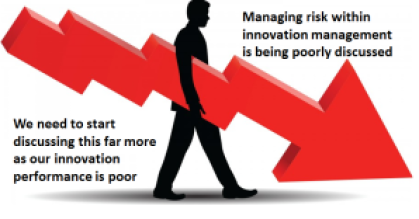I recently provided a post on a very upbeat PwC report on innovation and its growing importance to growth in the coming years. The PwC report “Breakthrough innovation and growth” was a survey of 1,757 C-suite and executive respondents, on their thoughts on innovation and where the new growth was coming from in approach.
The top line was companies are seeing innovation transforming their businesses and their need to take a more sophisticated approach to innovation, so as to achieve the growth plans they are setting for the next five years.
There was a strong indication that the innovation that was going to be pursued was going to follow a far more radical set of innovation practices that have the potential for offering a real impact on companies future growth ambitions.
Yet I have also been reading another report issued by Corporate Executive Board (CEB), a leading members-based advisory company called “Growth Readiness- prioritizing investments to drive executive commitment” discussing the secret to effective investment prioritization is demonstrating your organization’s readiness to pursue growth. (N.B You need to fill out the form to obtain the report)
Both correlate on the strong need for growth. CEB suggests as the global growth has stalled that in response, companies have planned to boost non-incremental growth investments by almost two-thirds.
The CEB defines non-incremental investment as a large growth opportunity that requires some change to the business. Continue reading “Risk readiness and innovation growth – board room tension”
 I have been really struggling in the past few weeks.
I have been really struggling in the past few weeks.